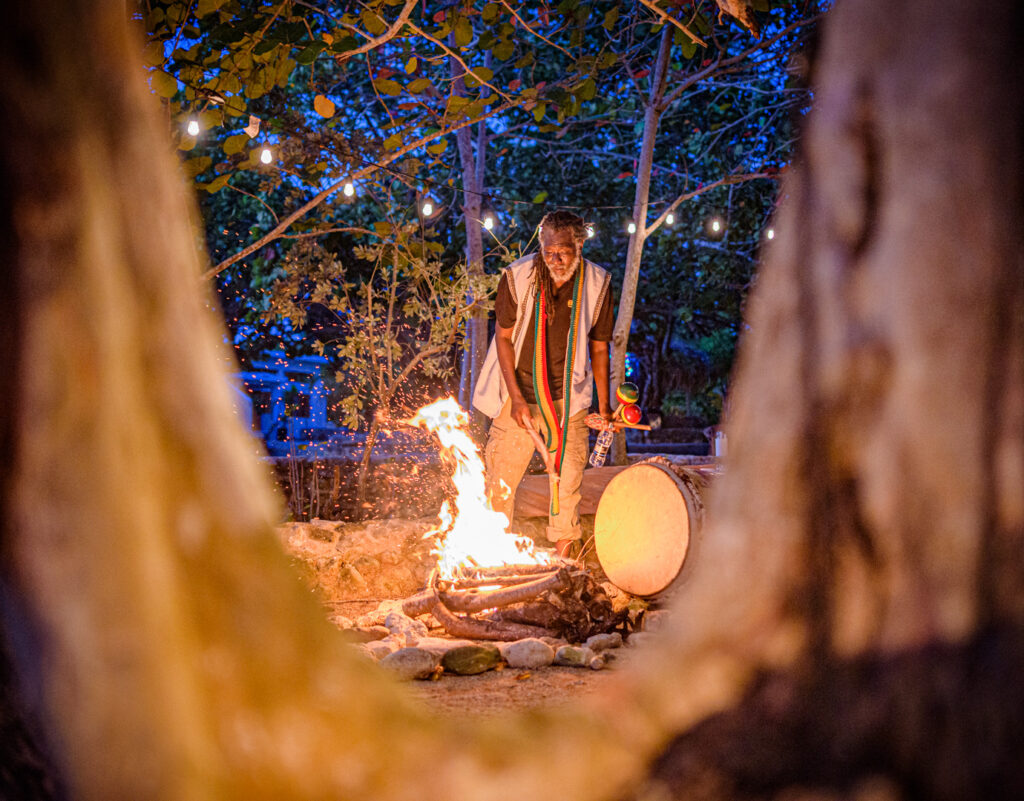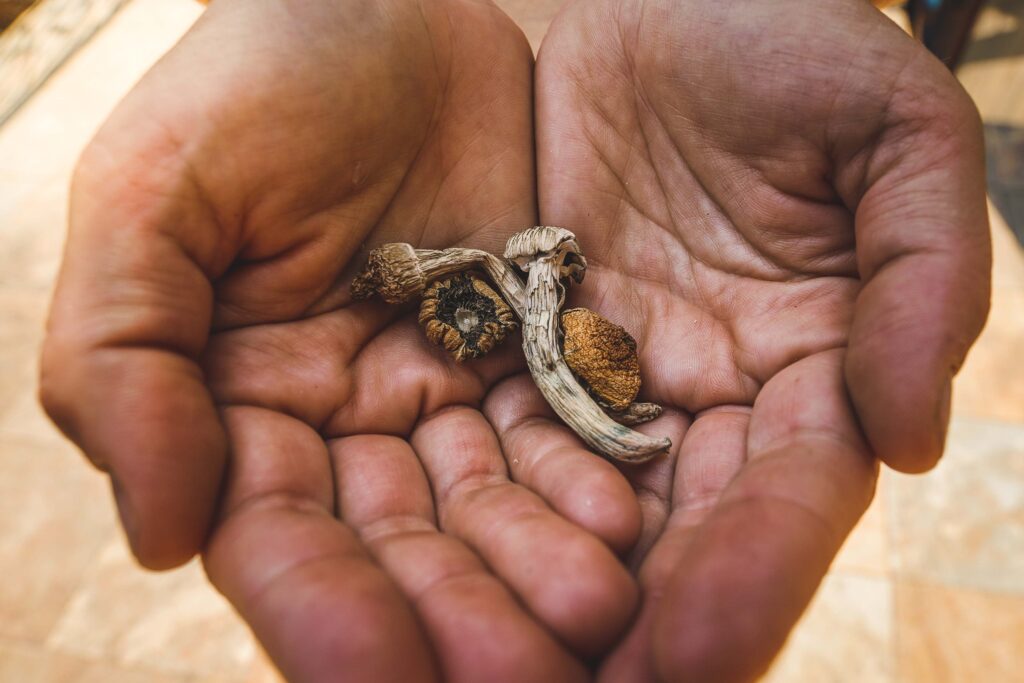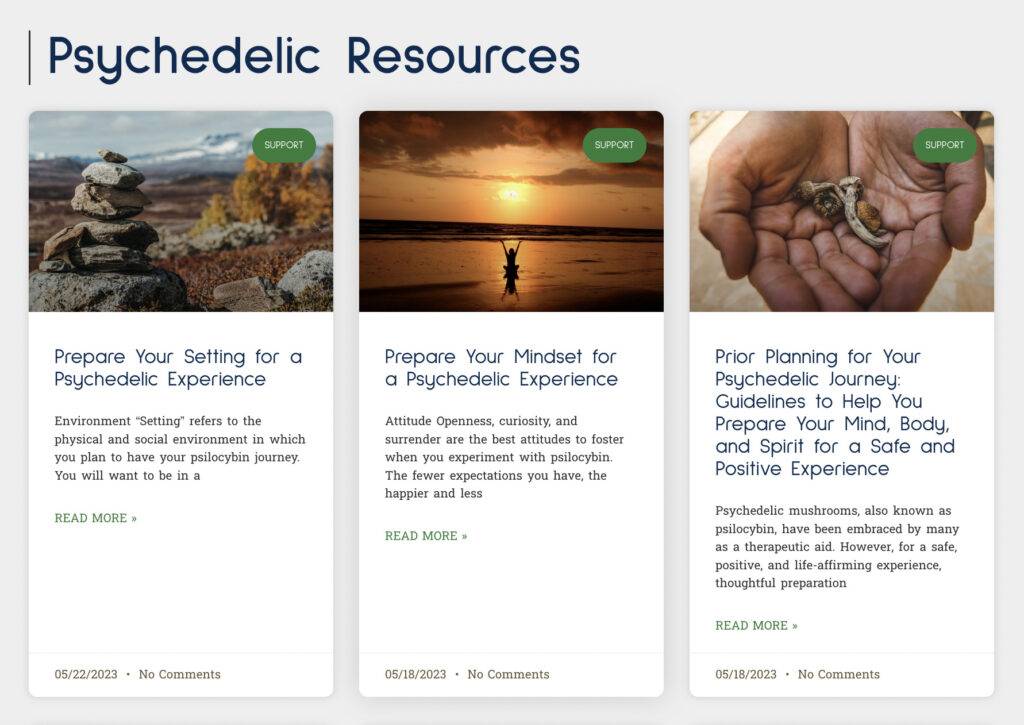Having someone trustworthy with you before, during, and after a journey will provide an extra layer of comfort and safety. Together, you’ll be able to express and process complicated thoughts and emotions.
Journeying with someone you trust may make it easier for you to let go of control and submit fully to the mushroom experience. Knowing you can rely on someone to respond to possible emergencies can diminish any anxieties you might otherwise experience. You can approach your experience with mushrooms as you might the journey of climbing a mountain.
When you climb a mountain for the first time, you may want to employ the services of a seasoned guide who has plenty of experience climbing and leading others up the mountain. Similarly, you may wish to ask for support on your psilocybin journey from someone who is skilled in helpingothers explore altered states of consciousness.
Trust, rapport, and therapeutic alliance are the most important factors in determining the success of facilitated sessions. Make sure you get to know your sitter before the journey. It’s best to work with someone you know well and trust fully.
As you explore your options, you may consider attending a psilocybin retreat or working with a professional facilitator or guide. You may also consider asking a trusted family member, friend, or community member to be your tripsitter.
It’s essential to enter the space with humility and gratitude for anybody who takes time to support your journey. A sense of entitlement will lead to challenging and disappointing journeys, which may teach you important lessons. You may be used to being in control and getting what you want, but the medicine shows you life does not always unfold as planned. The more you surrender to the process, the more an invisible force seems to support you.
In the end, an unexpected friend or community member may appear to support you on your journey. As a student on the medicine path, your teacher will appear when you are ready. At first, you might not even think of someone as a guide, but you may change your mind retrospectively through your experience.
Sitter’s Responsibilities and Qualities
A sitter’s role may resemble that of a babysitter, nurse, listener, or parental figure at different points in the journey. Their main priorities are to remain non-judgmental and present, and to ensure your psychological and physical safety. The best sitters are kind, humble, service-oriented, gentle, spiritually mature, and compassionate.
They will be curious about you without assuming they know better than you. At different times, you may feel they are present in the background, accompanying you by your side, or watching over you. They may hold your hand, give you a hug, help you go to the bathroom, or smile when you need it most.
A guide may feel like a parent, grandparent, sibling, or a teacher. They are there in service to you and your experience. They will follow your lead rather than pull you along in any direction. Mature facilitators practice “nondoing” and do not push, rush, or have anything to prove.
Usually, journeyers simply want to connect with someone with whom they can talk openly and vulnerably. Aneffective guide will help you feel more confident and selfsufficient. They will listen and point you back to yourself. You may realize that they are there to embody a reflection of your true self. You have everything within you to wake up, realize the truth, and make meaningful changes. Your tripsitter is there to support you in this process.
On Finances
The financial resources you are able and willing to invest in a psychedelic experience will determine the choices you have. Most guides, therapists, and retreat organizers will ask for some form of compensation. If your budget is tight, you’ll need to be realistic about your options.
At first, you might question why you would pay for someone to sit with you. Sometimes, the value of having a guide becomes evident only in hindsight. After going through an experience or two, you may understand the depth of work involved and the importance of being able to talk and process emotions with someone who has supported many others undergoing similar processes.
Rather than approaching it as “paying for a session,” it may be helpful to think of the required energy exchange as an investment in yourself and your spiritual growth, or as a gift to someone who has your best interests at heart.
You may be lucky and find a guide who does not charge anything for their time or services. Some psychedelic guides may offer support to friends and fellow community members. In fact, this is how most “professionals” start: as a trusted confidant who listens and cares, and to whom people come for advice about psychedelics.
If you are on a budget, look into the many free online communities and resources that can support you on your journey.
Finally, although it is helpful to have someone with you to talk through your emotions and visions as they arise, you can start by microdosing or taking small doses without the physical presence of a guide.
Private vs. Group Sessions
Each facilitator’s offerings are different. For example, some may only offer one-on-one sessions, while others may offer group sessions. Some may offer both. Sometimes, those who are initially skeptical about experiencing psilocybin in a group setting are amazed at the power of being part of a community circle. After a group ceremony, others may feel that a private session is more suitable for them. Keep an open mind about these options as you continue your exploration.









